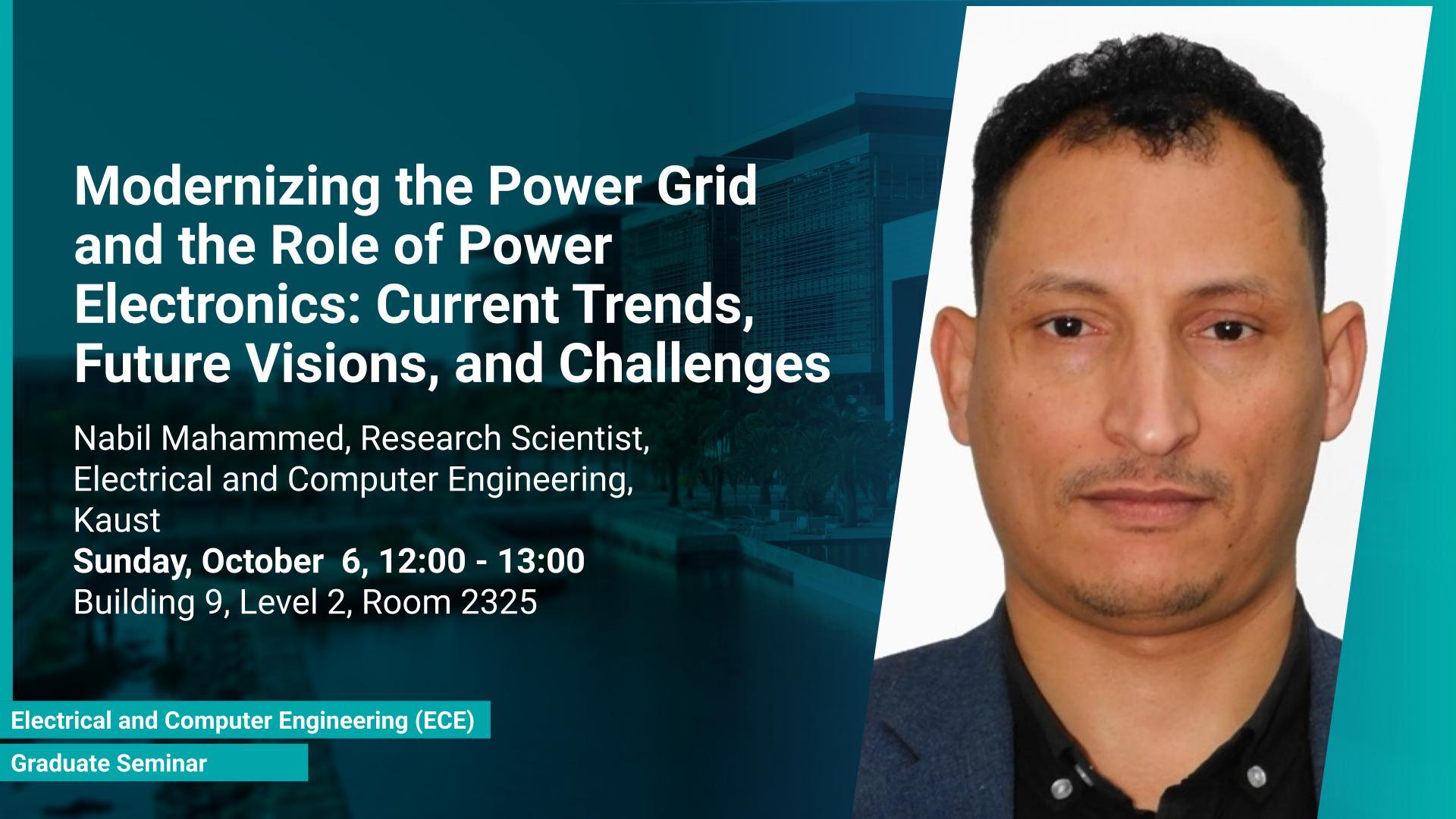Event Start
Event End
Location
Abstract
The modernization of power grids is essential for achieving decarbonization, net-zero energy goals, and fulfilling the commitments outlined in the Paris Agreement to combat climate change. Global efforts have been significant, with countries such as Australia, Denmark, Germany, the UK, and the USA modernizing their power grids by utilizing clean energy resources like solar and wind. In Saudi Arabia, traditionally reliant on oil and gas for electricity, the ambitious aim is to transform its energy landscape by achieving 50% renewable electricity by 2030 and net-zero emissions by 2060, as outlined in Saudi Vision 2030. This talk will address how power system dynamics and characteristics are being altered from traditional systems with synchronous generators to those integrating renewable sources. It will highlight the critical role of renewable energy technologies in modernizing the power grid, focusing on current trends, future visions, and key challenges. The presentation will also discuss advancements in power electronics that facilitate this transition, enhance grid flexibility, and ensure stability amid increasing renewable penetration.
Brief Biography
Dr. Nabil Mohammed received the B.Eng. degree (Hons.) in electrical power engineering from Tishreen University, Latakia, Syria, in 2013, the M.Eng. degree (Hons.) in electrical engineering from Universiti Teknologi Malaysia, Johor Bahru, Malaysia, in 2017, and the Ph.D. degree in power electronics from Macquarie University, Sydney, NSW, Australia, in 2022. Dr. Mohammed recently joined the Computer, Electrical and Mathematical Sciences & Engineering (CEMSE) division at KAUST as a Research Scientist. From 2021 to 2024, he was a research fellow at Monash University, Australia. During the summer of 2019, he was a Visiting Researcher with the Department of Energy Technology, Aalborg University, Denmark. Dr. Mohammed is a senior member of IEEE. His research interests include power electronic converters, renewable energy generation and integration into power systems, microgrids, energy storage and management systems, and the modeling and control of electric systems. He has published several research papers in top-tier journals, performed more than 350 peer reviews for leading journals and international conferences, and has edited a book on renewable energy technologies titled Grid-Forming Power Inverters: Control and Applications, published by CRC Press, Taylor & Francis, USA, in 2023.

